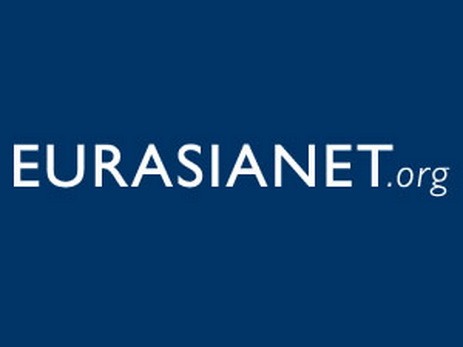EURASIANET: A New Course for Armenian Diplomacy After the Four-Day War

In early May, the government of Armenia started a diplomatic game by using “recognition of Nagorno-Karabakh,” a separatist Azerbaijani region under Armenian occupation, as leverage against Azerbaijan in peace talks over the region and seven adjoining occupied territories.
A draft bill to recognize “the independence of the Nagorno-Karabakh Republic” emerged in Armenia after the so-called “Four-Day War,” intensified skirmishes between Azerbaijani and Armenian military forces in the Karabakh conflict zone that ran from April 2-6.
On May 5, the Armenian cabinet approved the draft, proposed by two opposition members of parliament, the Heritage Party’s Zaruhi Postanjian and the Armenian National Congress faction’s Hrant Bagratian. Armenian Deputy Foreign Minister Shavarsh Kocharian said that the approval “is linked to the results of the discussion between Armenia and Nagorno-Karabakh, taking into account further developments” in the territory, Armenian media reported.
Azerbaijan condemned Armenia’s initiative as an attempt to halt negotiations over Karabakh and seven adjoining territories also under Armenian occupation.
Russia and the United States, both co-chairs of the Organization for Security and Cooperation in Europe (OSCE) Minsk Group, which oversees the peace talks, clearly expressed displeasure at any recognition of Karabakh. Russian presidential spokesperson Dmitry Peskov cautioned “both sides” against “any steps that could violate the fragile ceasefire and lead to an escalation in Karabakh.”
Urging further negotiations, Deputy US State Department spokesperson Mark Toner noted that neither the United States nor the international community recognizes Karabakh’s independence from Azerbaijan. The region’s “final status will only be resolved in the context of a comprehensive settlement,” he said.
Amid international disapproval of its plans, the Armenian government then backtracked. It claimed that it had not approved recognition of Karabakh’s independence, but only made a conclusion about the two MPs’ legislative initiative.
Ex-Armenian President Levon Ter-Petrosian, who governed Armenia during the active stage of the Nagorno-Karabakh fighting in the 1990s, shared that disapproval. “Without the support of international organizations or at least one or two superpowers,” he announced on May 6, recognition of Nagorno-Karabakh’s independence from Azerbaijan “can lead to unpredictable consequences.”
That stance hearkened back to 1997, when, in the article “War or Peace? Time to Get More Serious,” Ter-Petrosian highlighted the importance of making concessions to resolve the conflict.
“Let us not indulge in self-deception and cherish false illusions,” he wrote. “We have no allies on the issue of Karabakh’s independence.”
His emphasis on concessions came shortly after the American, French and Russian co-chairs of the OSCE Minsk Group proposed a new peace plan that envisaged a step-by-step approach to a long-term settlement.
The plan would have delayed agreement on Karabakh’s status until the last phase of the peace process, which would start with the return of the Armenian-occupied Azerbaijani territories surrounding Karabakh to Azerbaijan’s control. This could create a favorable environment for a mutually acceptable deal on the final status of Nagorno-Karabakh.
Azerbaijan and Ter-Petrosian accepted this approach, but it was rejected by the powerful members of Ter-Petrosian’s government, including the then-minister of national security, Serzh Sargsyan, now Armenia’s president. Amid an outcry from the opposition and the start of a public campaign denouncing Ter-Petrosian for planning to “sell out” Karabakh, the president resigned in 1998.
The “party of peace,” he announced, had been defeated.
Flash forward to the present, and all has changed. Despite deep differences between Ter-Petrosian, now the head of the opposition Armenian National Congress, and President Sargsyan, the old foes recently became friends.
Their meeting after the April flare-up in the conflict zone was followed by Ter-Petrosian’s visit to Karabakh, where he met with the region’s separatist leaders.
The former president subsequently switched tactics and called for Armenian diplomats to use the principle of “remedial secession” – the tenet that oppressed people have the right to claim secession in response to threats.
Ter-Petrosian, however, forgot about the rights of Karabakh’s Azeri residents, who were subjected to ethnic cleansing, along with hundreds of thousands of others from the seven adjacent occupied territories. This community of displaced Azerbaijanis numbers about 1 million.
He also neglected to mention ethnic Armenian military forces’ 1992 massacre of ethnic Azerbaijani civilians at Khojaly town. At that time, Ter-Petrosian was president of Armenia and Serzh Sargsyan was the head of Karabakh’s separatist forces.
For years, Ter-Petrosian and Sargsyan were perceived as implacable foes, particularly after the 2008 presidential elections, which ended with fatal clashes between Ter-Petrosian’s supporters and government forces. At the time, Ter-Petrosian characterized Sargsyan’s rule as “a catastrophe for Armenia.”
Sargsyan’s government wants to use Ter-Petrosian to show its domestic audience the importance of national solidarity against external threats. That solidarity, in turn, is key to distracting attention from the country’s worsening economic and social-welfare situation.
Ultimately, Ter-Petrosian’s U-turn from the “party of peace” to the “party of war” is an attempt by the Armenian political elite to block the peace process and preserve the status quo indefinitely, or until conditions favor Armenia.
This new course of Armenian diplomacy, however, could draw matters to fresh conflict.
As Ter-Petrosian wrote in his 1997 proposal to the people of Armenia, “The issue should be solved only through peaceful negotiations; preserving the status quo for a long time is not possible, because neither the international community nor the economic capabilities of Armenia will allow that. Karabakh and Armenia will not benefit from the unsettled situation, as it impedes their economic development.”
This approach appears timely now as well. A comprehensive resolution of the conflict can be achieved only through fair and effective peace talks based on international norms.
Nurlan Aliyev is an adviser in the Center for Strategic Studies under the President of the Republic of Azerbaijan.














